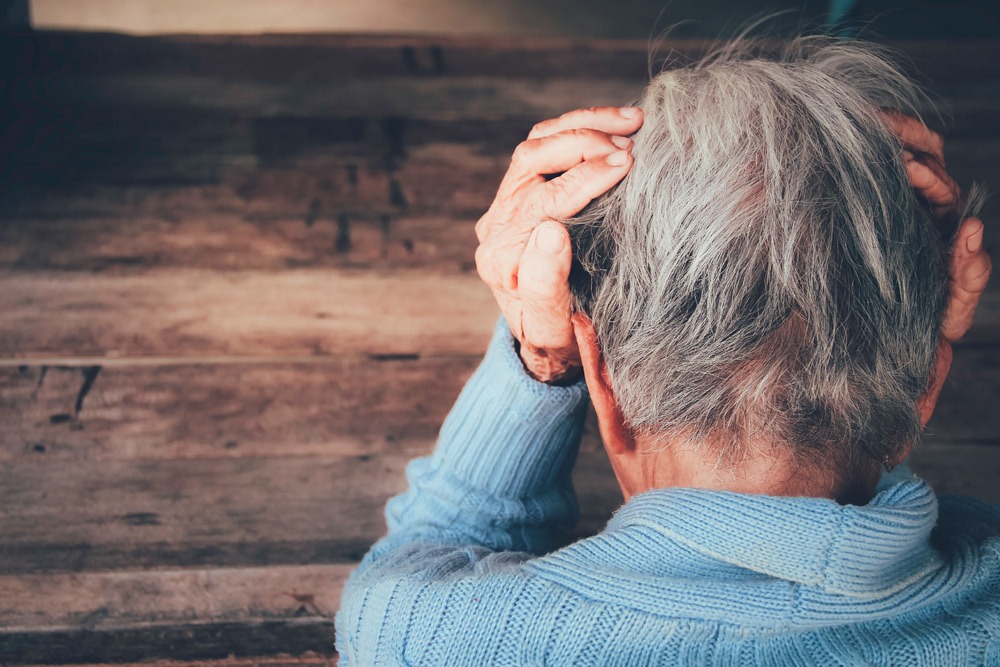
Dementia is a general term used to categorize mental decline. Each individual experiences unique characteristics in every stage. Experts divide Dementia into different stages and depending on which expert you follow. However, the final stages of Dementia share many different aspects that can make caring for these individuals extremely difficult.
How Dementia Progresses
When an individual is diagnosed with Dementia, no one knows exactly how soon one will deteriorate into the final stages as the progression of the disease varies widely from patient to patient. disease progression also varies with the type of Dementia the four most common types are:
-
Alzheimer’s Disease, which affects memory first ad progresses to other cognitive abilities such as speech, reasoning, and movement
-
Vascular Dementia, often the result of a stroke in which areas of the brain suffer irreversible damage, with symptoms varying upon the area affected
-
Lewy Body Dementia, which leads to decreases in cognitive ability, hallucinations, delusions, and movement problems
-
Frontotemporal Dementia, affecting speech and personality but not memory
What are the Early Signs of Dementia?

Dementia can often creep on patients. Memory problems on their own aren’t necessarily a sign as some memory loss is normal as people age. You should become concerned, though, if a loved one experiences these early signs of Dementia.
It’s important to get a thorough examination as some medical conditions can mimic Dementia, yet the symptoms can be reversed with proper treatment. Conditions exhibiting dementia-like symptoms include:
-
Infections and immune disorders
-
Metabolic problems and abnormalities
-
Nutritional deficiencies
-
Bleeding between the surface and the covering of the brain
-
Side effects of medication
-
Poisoning
-
Brain tumors
-
Anoxia
-
Normal-pressure hydrocephalus
Caring for Dementia Patients
Many individuals in the earlier stages of Dementia are able to maintain some of their own care. However, as Dementia progresses, you must make changes in the daily routine of your loved one. For some, transitioning to senior independent living is the answer. This type of care allows you or your loved one to live as independently as possible yet get help with cooking and cleaning as well as bathing and other personal grooming tasks.
Senior independent living is appropriate for those in the early stages of Dementia, as well as for some in the earlier middle stages. In the early stages, a caregiver can help with appointment reminders, names of people, developing a daily to-do list, and coping strategies to help the patient live as independently as possible. You should also develop a long-term care plan at this point.
During middle-stage dementia, patients need more help. At first, your loved one may only need a cue or a prompt, but eventually, hands-on assistance and additional services will be required during senior home care. As patients progress toward late-stage Dementia, they start losing the ability to communicate appropriately, become unable to drive, and eventually must have constant supervision as leaving the patient alone will be unsafe.
Late Stage Dementia Overview
Patients in the final stages of Dementia need significant care with assistance and supervision required around the clock. At some point, patients become entirely dependent on their caregivers. Here is what you can expect to see from a patient in the final stages of Dementia.
General Symptom Changes
Patients become increasingly frail as they progress through the last stages of Dementia. At the same time, patients often experience moments of lucidity with their abilities return temporarily. Their environment often tempers reactions with patients acting more positively if they are in familiar surroundings. Expect your loved one to experience increasing declines in:
-
Memory, concentration, and communication
-
Mobility
-
Eating and weight loss
-
Toileting and incontinence
-
Behavior changes
During late-stage dementia, the role of caregivers begins to change as it focuses on preserving the patient’s dignity and quality of life. Connecting with the patient is often done through sound, sight, taste, smell, and touch. Among the activities that late-stage patients can enjoy are:
-
Music
-
Reading
-
Browsing through old photos
-
Favorite foods
-
Sitting outside on a nice day
Memory Concerns
Those in the last stages of Dementia have significant memory loss and cognitive problems. Recent memories are often lost, and patients often believe they are living in an earlier period and may become agitated if they are prevented from doing something. They may do and say things that don’t make sense. The inability to recognize partners, friends, and family is common. These characteristics can become quite difficult for the patient and those surrounding him or her. You should never take the patient’s inability to remember personally, as this is simply the progression of Dementia. Even when dementia patients are unable to recognize a particular person, they may still experience positive feelings that they associate with that individual, which can contribute to keeping them happy.
Health Problems
Health continues to deteriorate in late-stage Dementia and usually involves problems with mobility, additional health problems such as arthritis, infections along with increased side effects from medication. Each new issue will require additional care.
Mobility
Many patients, though not all, gradually lose their ability to walk, stand, or get up from a chair or bed. They are more likely to fall. Some individuals stay in one position for a long time, which can result in a pressure ulcer, commonly called bedsore. These can be easy to prevent at the outset but can become painful and infected if neglected.
As mobility decreases, the risk of infections and blood clots increases. Patients should be encouraged to move around as much as possible through the support and chair-based exercises. Regular occupational and physical therapy can also help maintain mobility.
Illness and Discomfort
Infections and illness not only become more common, but they can also increase confusion. Patients in the last stages of Dementia may not be able to communicate that they are feeling unwell or in pain. Changes in behavior can signal infection or pain. Paying close attention to the patient’s behavior is necessary as illness must be quickly diagnosed and treated. Delirium is a common symptom pointing to illness or infection. Sign of delirium include:
-
Not paying attention
-
Muddled thinking
-
Change in consciousness or sleep/wake cycle
-
Disturbed language
-
Hallucinations
Signs can change and usually get more severe as the day progresses.
At this point, patients can still feel pain but may not be able to express it adequately. Instead, they begin to behave in unusual ways, which is why it is essential to pay close attention to behavior and make sure that pain is managed correctly. Common causes for pain include urinary tract and other infections, constipation, and conditions like arthritis. Often, late-stage dementia patients do not receive proper pain mitigation.
Medication and Its Side Effects
Many patients with Alzheimer’s Disease and other dementias take prescription drugs that can temporarily improve dementia symptoms. Although primarily prescribed for Alzheimer’s patients, cholinesterase inhibitors are sometimes prescribed for vascular Dementia, Lewey Body dementia, and Parkinson’s Disease Dementia. These medications, including Aricept, Exelon, and Razadyne, work by boosting chemicals involved in memory and judgment. Memantine works by regulating glutamate activity and is only prescribed to Alzheimer’s patients.
Doctors may also prescribe medications to treat depression, sleep disturbances, agitation, hallucinations, and other medical problems. Some drugs prescribed for behavioral problems in dementia patients can have severe side effects and may increase confusion or present other problems.
Side effects of cholinesterase inhibitors include nausea, vomiting, diarrhea, slowed her rate, fainting, and sleep problems. Memantine can produce dizziness.
Signs of Dying
Knowing the signs of when a loved one with Dementia is near the end of life is critical so that you can provide them with the right amount of care. As Dementia progresses at different rates in everyone, it can be challenging to know when your loved one is close to death. However, all dementia patients exhibit common symptoms.
Starting at approximately six months before your loved one passes, he or she may receive a diagnosis of another health condition like congestive heart failure, cancer or another life-threatening disease, leading to an increase in hospital visits. In the final two to three months, patients may only speak six words or less each day, have difficulty swallowing, and start choking on foods and may be unable to sit upright without assistance. The final weeks or days bring an increasing amount of time asleep or unconscious, terminal restlessness and agitation, changes in breathing, and the inability to swallow.
Where to Care for a Person in the Last Stages of Dementia
When your loved one moves into the last stages of Dementia, you have a number of options for his or her care. The best time to decide about where they should spend the last months of their life should occur during the earlier stages when the patient can still participate in the decision. Moving dementia patients in the later stages can have significant challenges for both patients and caregivers. Dementia patients can receive support in the following settings:
-
Traditional home – Your loved one can continue to live in his or her own home as long as they receive appropriate care services and the proper medical equipment is available for use
-
Assisted living – The same as above but in a building where the patient has a private appointment, and memory care and other services are provided
-
Nursing home – Onky appropriate if the patient has other accompanying health issues
Those experiencing late-stage Dementia often have more frequent hospital stays, but staying for a long time in a hospital setting is generally unfeasible. When dementia patients have entered the terminal phase of their lives, their caregivers can elect to obtain hospice services, either in the home or at a stand-alone hospice facility, to keep their loved ones as comfortable as possible.
How Centric Healthcare Can Help

Caring for a loved one with Dementia becomes increasingly difficult as the months and years pass. Caregivers can become overwhelmed, even in the earlier stages, because so many tasks must be performed. You don’t have to take the journey alone. Centric Health Care can provide you with a wide variety of services that will keep your loved one happy, healthy, and engaged.
Getting help and guidance soon after diagnosis is essential. Our staff will conduct an initial evaluation of your loved one’s situation and recommend the frequency for a trained private home nurse along with other tailored services that your loved one will need. Because needs change quickly, we also schedule periodic evaluations to make sure that all care requirements are continuously met.
Additionally, we have staff who specialize in providing care specifically for dementia patients. Our specialized care includes:
-
Walking and transferring assistance
-
Wandering prevention
-
Medication reminders
-
Bathing and grooming
-
Light chores
-
Meal preparation
Don’t struggle with caring for your loved one. We understand your challenges. Instead of moving your loved one to a nursing facility in Minnesota, let us provide you with appropriate services. Contact our home health care experts in Rochester, Edina, or Austin today for a consultation. We can even help you determine Medicare, Medicaid, and other insurance processing.

